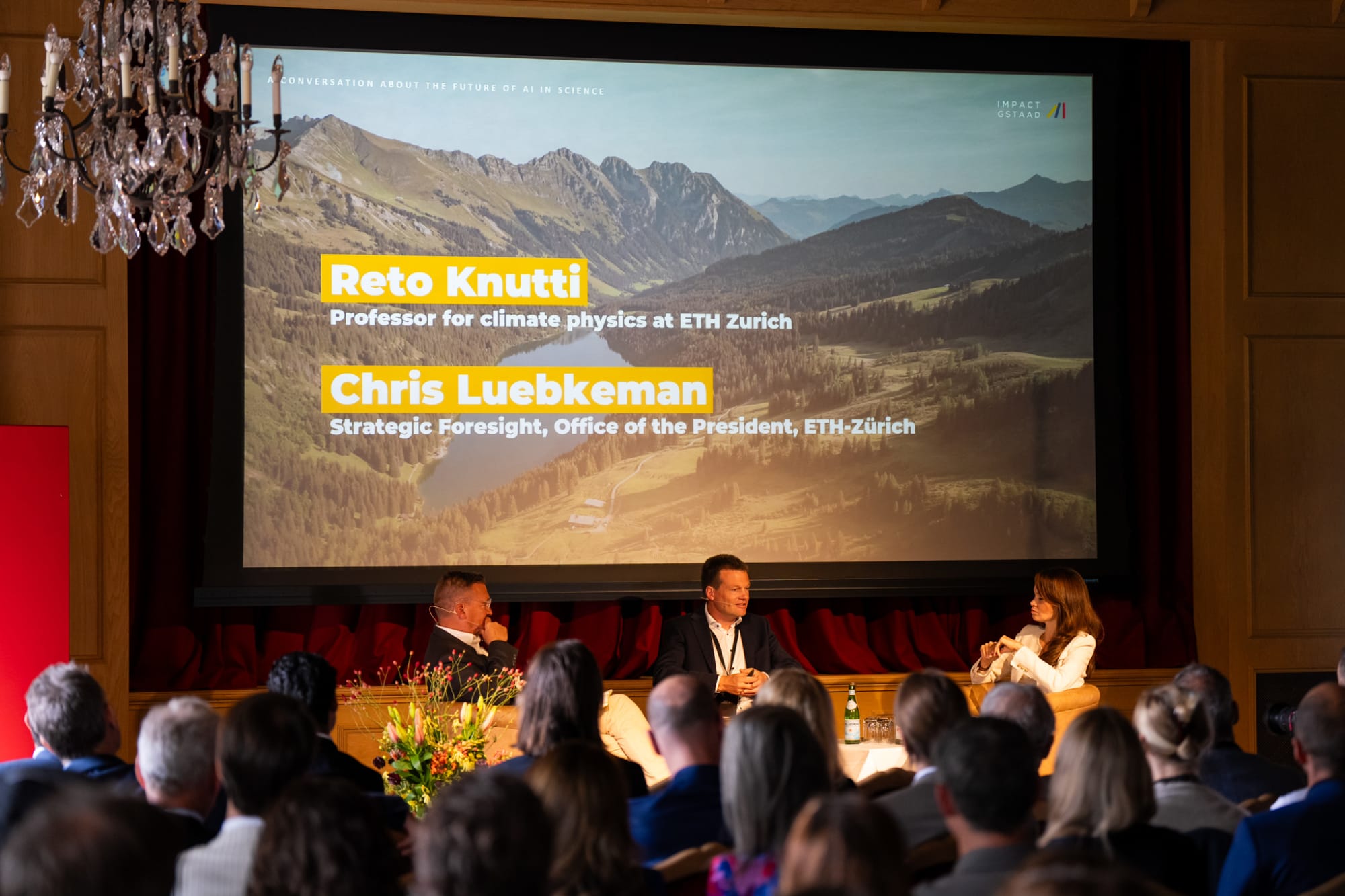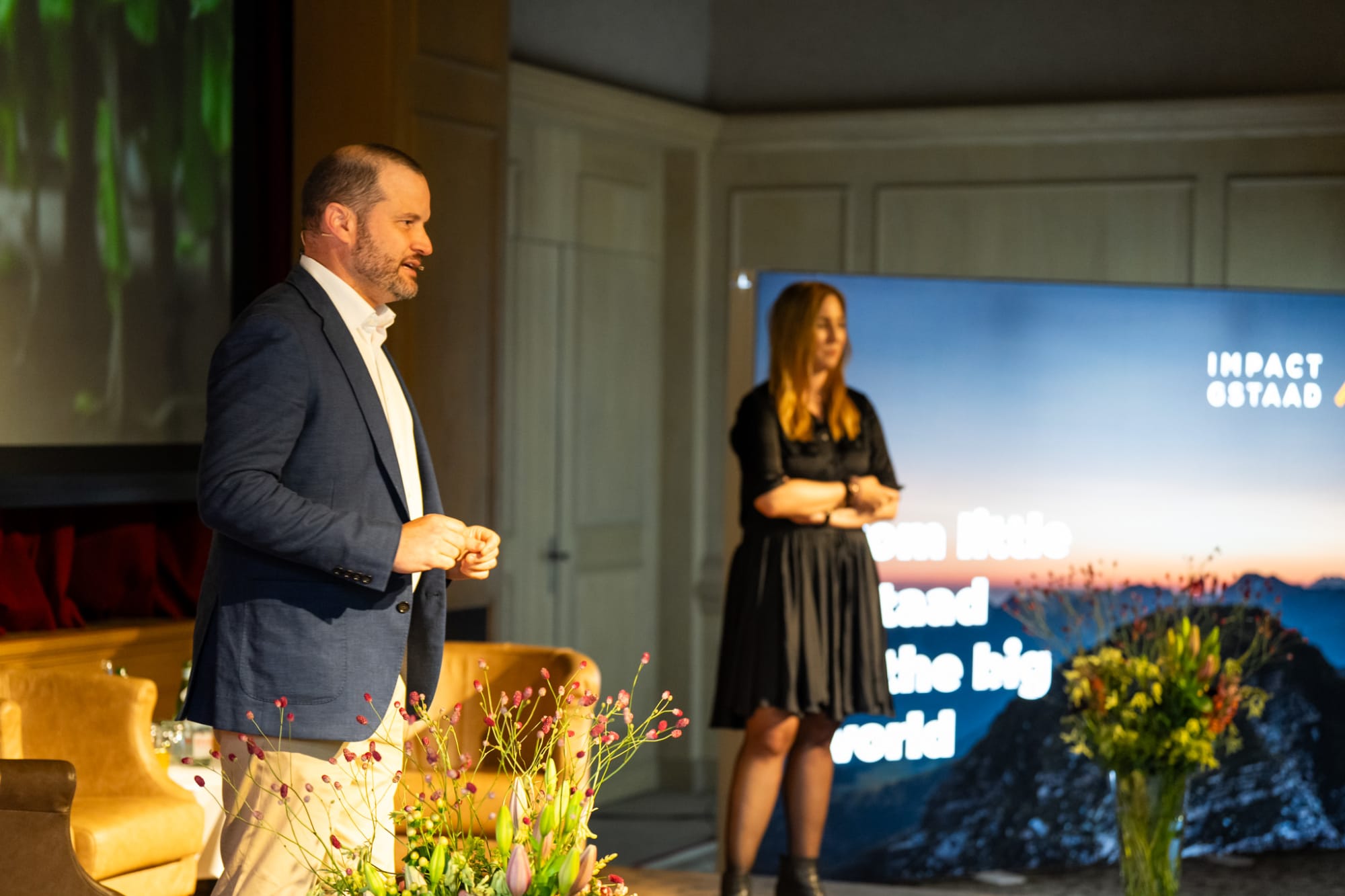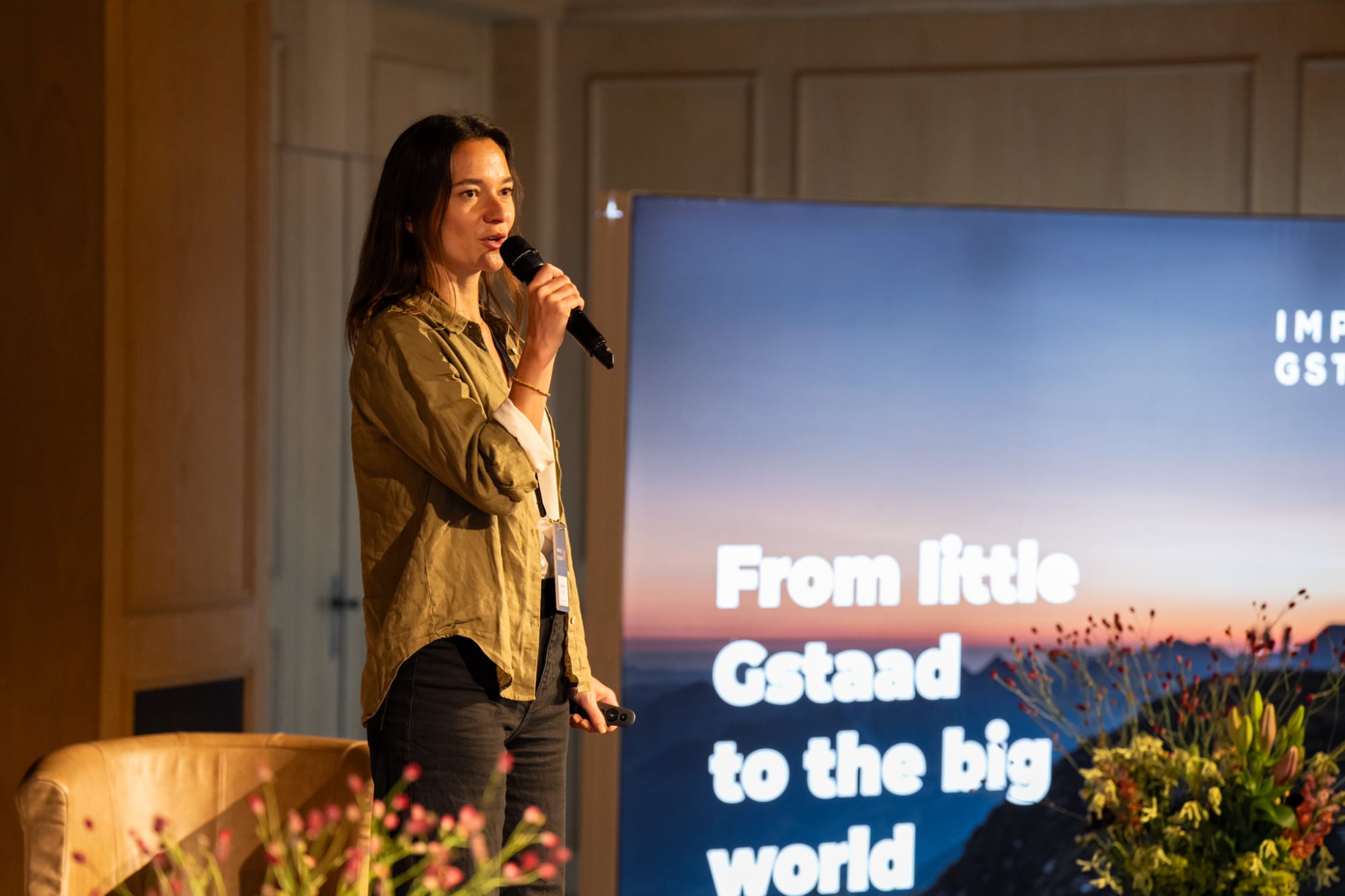Artificial Intelligence for a Sustainable Future
Impact Circle Event, 30 June 2023
Into the future with artificial intelligence
"Everything that can be automated will be automated in the future." With these words, Dr Chris Luebkeman, futurologist at ETH Zurich, summed up the rapid development of artificial intelligence in his presentation at the second Impact Circle event of this year at the Hotel Gstaad Palace. On Friday afternoon, renowned experts from science and business discussed with the 150 invited guests how AI can be used for the benefit of sustainable development.

From mango jam to indoor herbs
In addition to rather abstract topics such as the linking of different ecosystems through Big Data, the visionaries of the future also presented very concrete and tangible examples of how artificial intelligence can promote social and ecological sustainability. For example, Dr James Gifford, Senior Fellow, Centre for Sustainable Finance and Private Wealth at the University of Zurich, and Michèle Meister, Sustainable and Impact Investing Advisory at Credit Suisse, used a fictitious young Angolan mango farmer to show how people from developing or emerging countries can build their own business with the help of AI tools. Artificial intelligence accompanied the farmer from the recipe for a mango jam to the creation of a business plan and a logo.
Another buzzword in connection with sustainable agriculture is "vertical farming". Mark Zahran, founder & CEO of the Swiss company YASAI gave the attendees an insight into his automated, AI-controlled greenhouses, in which he cultivates organic indoor herbs on several levels. This cultivation method promises large yields on a small area, a reduction in transport distances and avoidance of pesticides.
In addition, several companies presented their innovative solutions in the fields of renewable energies, healthcare, agriculture and mental health.

Sustainability in Gstaad
As part of the Impact Circle event, those responsible also provided information on the current status of the Impact Gstaad projects. Marie-Line Michel, head of the Young Impact education project, reported on the first workshop held in May with pupils from various Gstaad educational institutions. Young Impact aims to raise awareness of sustainability issues among young people in the Saanenland region.
Dan Oechslin, CEO & owner Green Energy Venture and member of the management team of the alpine solar project SolSarine, was satisfied with the development steps and expressed confidence that the schedule can still be met so that construction of the solar plant can begin in mid-2024. SolSarine intends to set a milestone in the Swiss energy industry with decentralised large-scale photovoltaic plants in alpine pastures. At four to six summering sites in the Saanenland, solar modules will one day provide local solar power. The panels are to be installed in such a way that the cows can graze unhindered.

Positive conclusion
"We are thrilled with the positive response and rich exchange that took place at the Impact Circle event," said Manuel Linder, President of the Impact Gstaad Association. "The discussions and presentations showed that innovation and sustainability can go hand in hand to create a better future for all. We are confident that the ideas and collaborations that emerged here will have a tangible impact."












.jpg)

